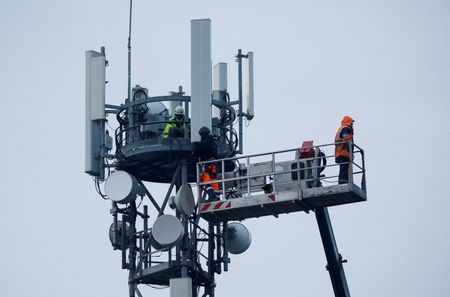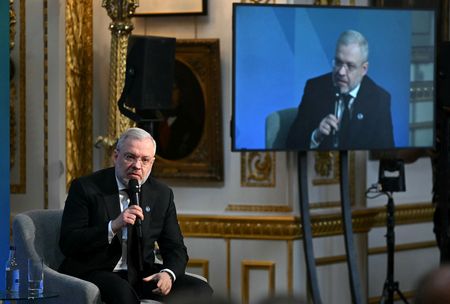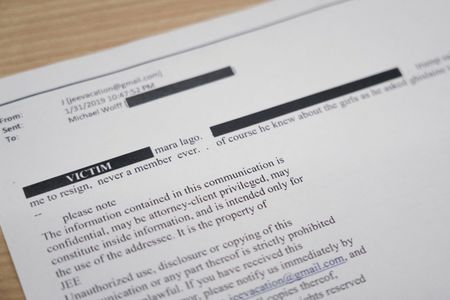By Foo Yun Chee
BRUSSELS (Reuters) -Europe’s telecoms operators are set to gain access to the bulk of key spectrum coveted also by internet providers, with the backing of an advisory body to the European Commission, people with direct knowledge of the matter said on Wednesday.
The issue pits Deutsche Telekom , Orange , TIM , Vodafone and other telecoms companies against Amazon, Apple, Meta Platforms, Microsoft and other tech companies.
The former wants more spectrum for mobile services, warning that Europe could fall behind the U.S. in future 6G deployment if it does not have access to the upper 6GHz band, one of the few remaining large blocks of mid-band spectrum available.
The latter group says additional spectrum is crucial for wi-fi services and the next generation of digital services and products. Both groups want the entire upper 6GHz band solely allocated to them.
The Radio Spectrum Policy Group, which met in Brussels earlier on Wednesday, will shortly issue its opinion proposing 540 MHz of the 6GHz band go to mobile operators, the sources said.
The remaining 160 MHz that could go to the wi-fi companies will be frozen until the World Radiocommunication Conference 2027 organized by the International Telecommunication Union (ITU) that will provide a roadmap for spectrum bands for future mobile technologies, they said.
The policy group’s opinion will be sent to the European Conference of Postal and Telecommunications Administrations (CEPT), made up of 46 countries to cooperate on regulatory and technical standardisation issues.
CEPT will define the conditions on how mobile operators can use the 540 MHz, one of the sources said.
Experts expect 6G to be commercially launched in the 2030s. The United States, Canada, South Korea and several other countries have already allocated portions of the 6GHz band for wi-fi use.
(Reporting by Foo Yun Chee; Editing by Elaine Hardcastle and Nick Zieminski)










